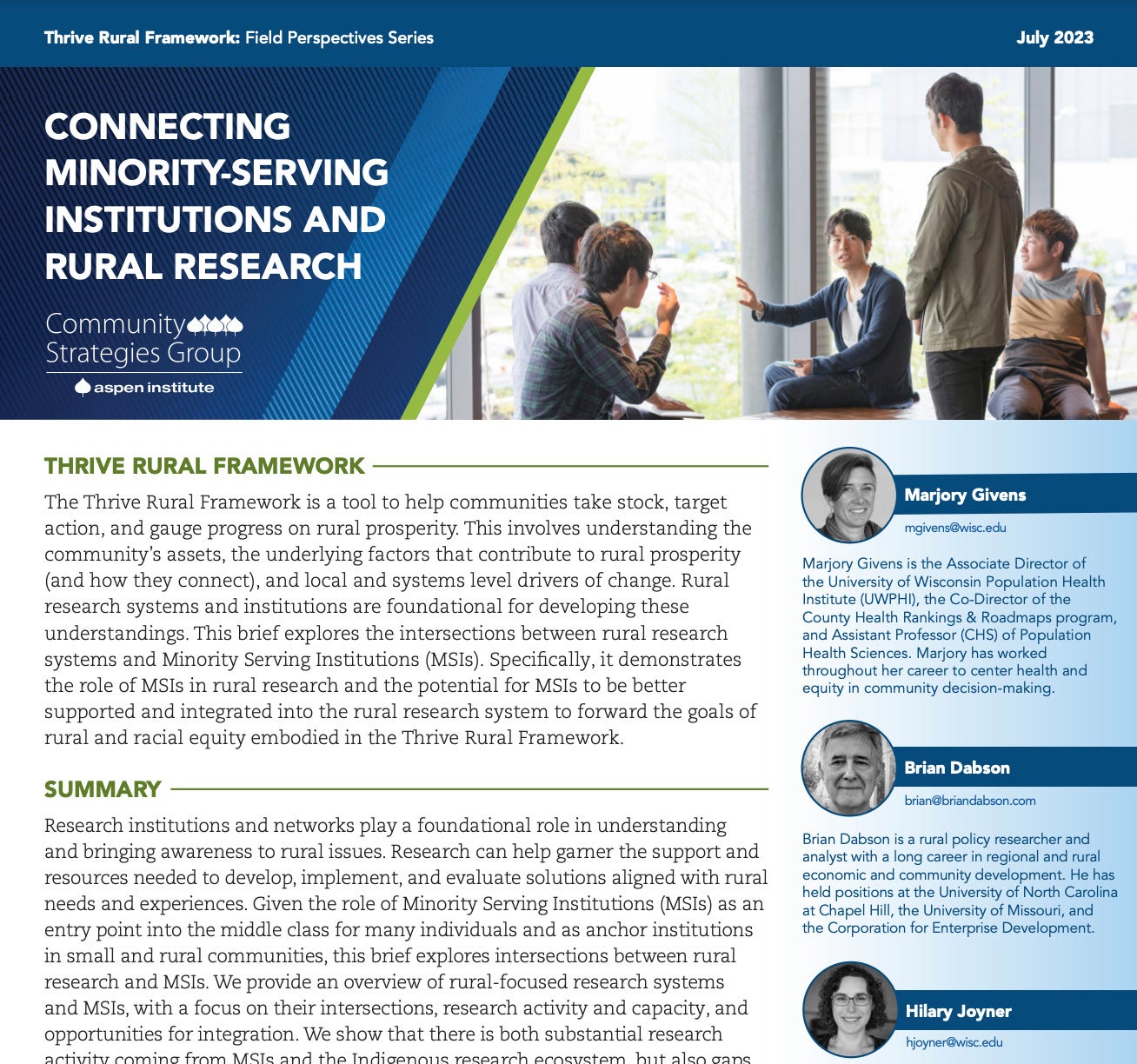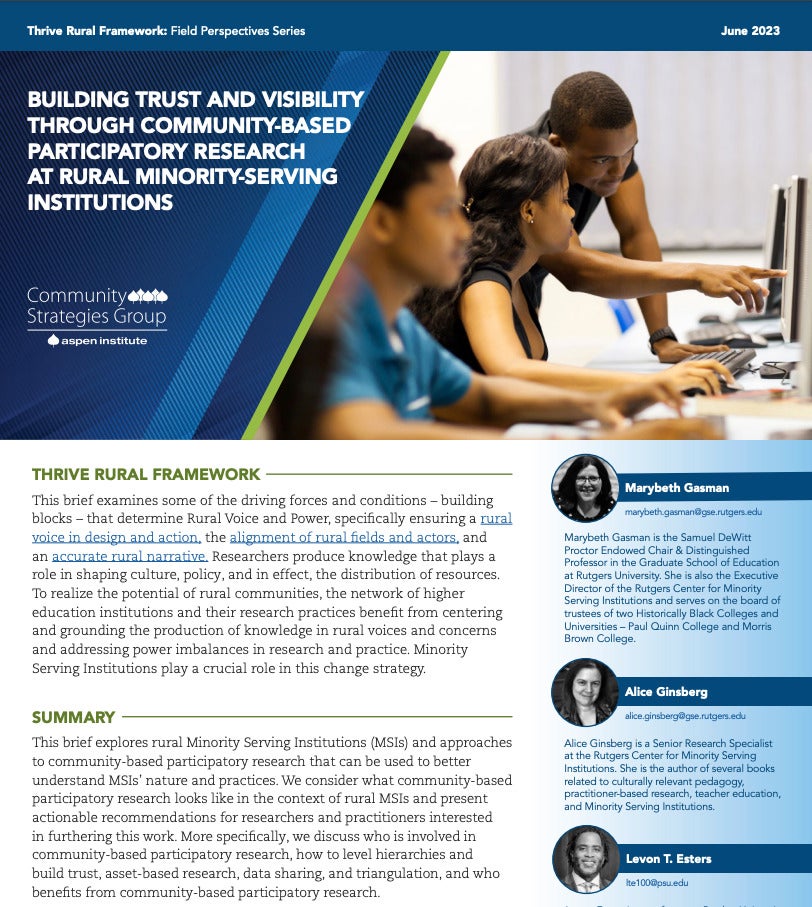Minority-Serving Institutions (MSIs) – universities and colleges that enroll a significant percentage of minority students – are located throughout the nation in nearly every state. Our recent briefs focus on the potential for these institutions to produce more rural research and integrate rural perspectives into established and developing rural-focused research systems.
As MSI research efforts are predominantly led and conducted by scholars from minority communities, these institutions are in a position to bring minority voices into research agendas. There is a clear opportunity to advance rural research and racial equity by centering minority and rural scholars’ voices and shifting power and resources to MSIs and rural scholars.
In our latest research brief, Connecting Minority-Serving Institutions and Rural Research, long-time Aspen CSG partners Marjory Givens, Brian Dabson, Hilary Joyner, and Olivia Little explore strategies for MSIs’ to produce research needed to develop and implement solutions aligned with rural needs.
This brief builds on Aspen CSG’s past work on Building Trust and Visibility Through Community-Based Participatory Research at Rural MSIs. Both reports make clear that MSIs are at the forefront of designing new models of teaching and learning, research, and leadership development. More funding for MSIs and Indigenous research networks within rural research systems is an essential strategy to amplifying the distinctive difference MSIs can make in rural research.
Thrive Rural Framework Connection: This brief examines some of the driving forces and conditions – building blocks – that determine Rural Voice and Power, specifically ensuring a rural voice in design and action, the alignment of rural fields and actors, and an accurate rural narrative.
Researchers produce knowledge that plays a role in shaping culture, policy, and in effect, the distribution of resources. To realize the potential of rural communities, the network of higher education institutions and their research practices benefit from centering and grounding the production of knowledge in rural, minority voices. Doing so also works towards greater racial equity in the higher education landscape. Minority Serving Institutions play a crucial role in this change strategy.


